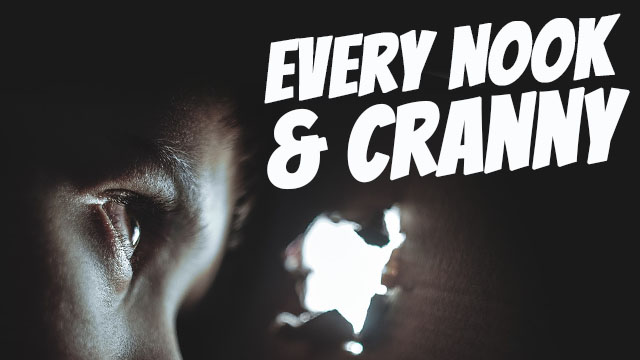Ep055: Expression – To Go The Way Of The Dodo
In today’s episode I teach you what the expression, “To go the way of the dodo” means as well as how to use it and then I run you through some verb tense exercises.
Download the full PDF transcript here.
Ep055: Expression – To Go The Way Of The Dodo
G’day guys. Welcome to this episode of Aussie English.
Today’s another expression that involves animals, and today’s expression involves an extinct animal. So, an animal who’s species no longer exists. It’s no extant, it’s extinct. They’re all dead. So, it’s an extinct species. Like the dinosaurs. All dinosaurs, at least as we know from the fossil record, are extinct, whereas their relatives, the living dinosaurs you could say, which are birds, are extant.
So, today’s expression is “To go the way of the dodo”, “to go the way of the dodo”. What does “to go the way of the dodo” mean? It means to follow in the footsteps of the dodo, go the same direction that the dodo went. So, it means to go extinct or to become obsolete. To no longer have a use if you’re talking about a thing and not a living thing like a species or an animal.
So, let’s explain some of these words. If you “go the way of something” it means that you follow that thing, you go the same way that that thing went. You go in the same way, in the same direction, in the same footsteps, the same path. You go the same way.
“A dodo” or “the dodo” is an extinct species of bird, and this was a really large flightless bird. So, it was flightless, it didn’t fly. It had really small wings, and it lived on an island called Mauritius. Mauritius. And so, it had a stout body, so it was kind of short and fat. Stumpy wings obviously because it couldn’t fly. The wings were little stumps. Um… very stumpy. It had a large head and a heavy hooked bill. So, it had a really big beak, or a bill, that was hooked. It bent at the end. It bent down like a hook. And, I believe that they’re actually related to pigeons, which I’m sure you guys will have seen in any big cities. We have pigeons everywhere in Melbourne.
So, it was found on Mauritius but at the end of the 17th century, so at the end of the 1600s, probably 400 or so years ago, it was hunted to extinction by sailors. Sailors are people who sail. They use boats. And so, whether they were pirates or smugglers or tradespeople, people using these boats went to Mauritius and the dodo was a flightless bird running around on the island. It didn’t have any predators. So, it wasn’t afraid of humans, and it was killed really easily and cooked to eat. And they obviously tasted good because they don’t exist anymore because sailors ate all of them. So, they went extinct and that’s the way that the dodo went. It went extinct. So, to go the way of the dodo means to go extinct or to no longer be used, to no longer be um… useful, to be obsolete.
So, when would you use this? Here are some examples. So, if we don’t conserve the Amazon rainforest, for example, the largest rainforest on earth found in South America. I think most of it’s found in Brazil. If we don’t conserve the Amazon rainforest all the species of animals and plants and other things that live in the Amazon rainforest could go the way of the dodo. So, they could all go extinct. All those species could be lost if we chop down their forest and they have nowhere else to live they could go the way of the dodo.
Um… Another example where things become obsolete could be something like landline phones, and a landline phone is a phone that you have that is connected to a physical chord, a wire, so, in your house that you use to call people. But today because everyone has a mobile phone fewer and fewer people now have a landline phone. So, the line is in the land that’s why it’s a landline. Um… and so you could say landline phones are starting to go the way of the dodo, they’re beginning to become obsolete because everyone has a mobile phone nowadays. Everyone has a mobile phone so landlines, landline phones are going the way of the dodo.
Another example of things becoming obsolete could be handwritten letters. So, no one writes that many handwritten letters to one another anymore because you can send text messages or you can send emails, and they’re a lot quicker, and you don’t have to really pay for them, you know? You’ve got to buy stamps to put on a letter. Then you’ve got to go to the post office. You’ve got to put it in the post. Send it in the post. A postman has to pick the letter up and take it to its destination, and then give it to the person you’re sending it to, giving it to the receiver to then open it, read it, and then send their own letter back, which could take days or weeks. Nowadays, we don’t have to do this. We can send emails and texts, and the people can receive these texts and emails almost instantly. And so, you could say that writing handwritten letters is starting to go the way of the dodo, or has even gone the way of the dodo. So, it’s starting to become obsolete, or it’s even become obsolete. It’s definitely something I don’t do anymore, or, have… probably have never really done at all.
So, to go through some different exercises today guys. Um… we’ll just… we’ll say the phrase “It goes the way of the dodo”, but we’ll change the tense. So, just repeat after me:
It goes the way of the dodo
It goes the way of the dodo
It’s going the way of the dodo
It’s going the way of the dodo
It went the way of the dodo
It went the way of the dodo
It was going the way of the dodo
It was going the way of the dodo
It has gone the way of the dodo
It has gone the way of the dodo
It had gone the way of the dodo
It had gone the way of the dodo
It will go the way of the dodo
It will go the way of the dodo
It would go the way of the dodo
It would go the way of the dodo
So, that’s today’s expression guys. To go the way of the dodo. I hope that humans don’t go the way of the dodo any time soon because I kind of enjoy this place. Um… until next time guys, have a good one!
Here's what you get when you sign up!
- Read while you listen using the Premium Podcast player.
- Understand every word in every episode.
- Download all PDF transcripts and MP3s for 600+ episodes.
- Get access to bonus member-only episodes.












Responses